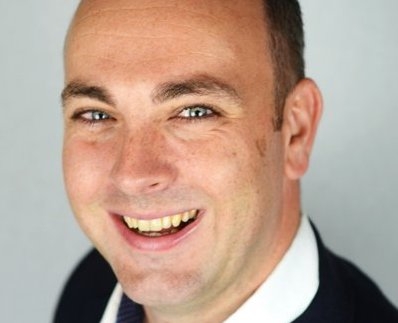As we near the end of the second decade of the 21st century, it’s fair to say the technological advances so far this century have been astonishing.
At the PFS Futureproof conference in Birmingham last week, delegates heard the keynote speaker, futurist Matthew Griffin, talk about biological computing, deep fakes, and other utterly transformative technologies. This technology isn’t the stuff of the future; it’s right here with us today.
Look around, and you can see how mobile banking and robo-advisers are transforming the customer experience of financial services. With new technologies continually reshaping the business landscape, what impact will these changes have on the industry, and where will the financial world go next?
When I was at university, we studied business at the time of the dot-com boom. The philosophy at the time seemed to be, as Mark Zuckerberg later said, ”Move fast and break things”. The rate of technological advance was fast then. It’s become exponential today.
When I graduated and entered the world of financial services 20 years’ ago, it was a stark contrast moving from an environment (albeit academic) which embraced change to one where change seemed strongly resisted.
But we can only resist this change, driven by scientific advances, for so long.
Matthew Griffin told PFS Futureproof delegates about Ava, a virtual human who is the most advanced neural network on the planet. Ava isn’t based in a lab somewhere, advancing our understanding of scientific principles, but busy selling mortgages, in addition to her other customer service roles.
Innovative technologies are also making it easier for clients to stay informed about their investments and reshaping their relationships with financial planners.
Planners have long taken a holistic approach to their relationships with clients, but the role was primarily analytical. So what will Financial Planning services look like as the field becomes increasingly digitised, and clients become more informed?
Robo-advisers have already made one thing abundantly clear; picking investments for clients is not enough anymore. I suspect cashflow forecasting will soon be swallowed up by AI tools too. With technology already capable of doing the heavy lifting, advisers need to bring something else to the party.
Advancing technologies allow Financial Planners to focus on providing a holistic service by taking care of the more technical aspects of their work.
Customers will want more control over their investments, and Financial Planners will have to coach clients and offer advice on big-picture questions like how to divide up wealth between heirs. Where should they live in retirement to maximise their savings? Does a client have enough life insurance? Although, arguably, some of these questions could be answered by computers already.
One thing going for us, as humans, is our unique ability to explain the rationale behind decision making. AI can’t do this, yet. While our roles will likely change beyond recognition in the short-term, our value isn’t going away for a little while longer.
In the past, you could mostly avoid technological change as it was taking place relatively slowly. This slow pace of change is not the case anymore.
We have a choice to embrace change rather than to feel like it’s being imposed upon us. We have to think proactively to get in front of the curve, and we need to understand how this technology is evolving.
If we take too long or resist change, we risk missing out on new opportunities.
Martin Bamford FPFS
Chartered Financial Planner
Managing Director, Informed Choice Ltd
www.icfp.co.uk |

